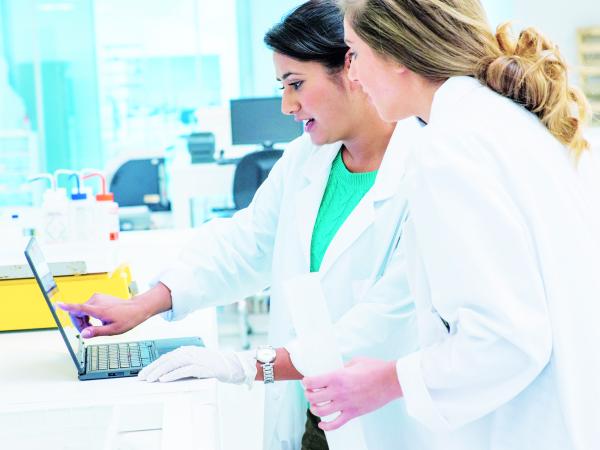Artificial Intelligence (AI) has become a catalyst for transformation in multiple industries, redefining the way companies operate, make decisions, provide their services and work on a daily basis. Thousands of organizations around the world are optimistic about the implementation of this technology. From the financial sector to manufacturing, communications or education, companies of all sectors and sizes see their potential to create new business models, optimize their processes, reduce costs, improve customer service, reach new markets and remain competitive.
But these benefits are not limited to the private sector. The use of artificial intelligence, data management, analytics and predictive capabilities play a crucial role in the public sector and governments by offering tools that transform decision making, improve the relationship between governments and citizens and improve its efficiency. These technologies allow government entities to process large volumes of data to identify patterns, anticipate needs and make informed decisions, and contribute to more transparent and evidence-based governance, driving progress and innovation in public administration.
According to figures from the OECDColombia is one of the seven countries in Latin America and the Caribbean that have an AI strategy in the public and private sectors. Without a doubt, the Mayor’s Office of Bogotá has set an example of having an innovative vision of the intersection between AI and public management.
Convinced of the strategic value of information and the transformative capacity of technology to enhance efficiency in public administration and generate well-being, four years ago, the Mayor’s Office of Bogotá created Ágata – the District Data Analytics Agency – a kind of startup of the mayor’s office that provides information technology services to district entities to develop and accelerate digital solutions that generate a significant positive impact on the quality of life of citizens.
Putting information to work for citizens
One of Ágata’s main clients has been the District Health Secretariat. Starting from an initial diagnosis, with all the entity’s data and with the advice of Microsoft, Ágata implemented three innovative solutions to put technology at the service of improving the health of the capital’s residents.
The challenge was not minor, since the Agency had to begin by “putting its house in order”: this included, first of all, the purification and organization of all the information from more than 60 information sources gathered in databases. Then began the task of ensuring its interoperability – that is, the ability of various systems and organizations to share and use data in an efficient and harmonized way.
But data without analytics is like disconnected pieces; Only through analysis are they transformed into valuable and actionable information, so Ágata immediately designed analytics capabilities, which is the process of examining data sets. Through algorithms and tools that reveal key insights, analytics discover patterns, trends and obtain meaningful information that allows you to make informed decisions.
The district health control tower
Once the information was organized, articulated, and armed with their analytics algorithms, Ágata technicians set about their next task: implementing a control panel that would monitor all the district’s health services, which include 22 public hospitals, more than 4,000 health centers and more than 12,000 beds, allowing real-time observation of the occupancy status, capacities, level of availability, qualification and variation of each service in the Bogotá care network. The result was the creation of a true control tower of the health service delivery system, which knows in real time the precise status of the city’s infrastructure and capabilities.
Thanks to this, the Secretariat can anticipate critical situations, such as the proximity to saturation of some service, and make timely decisions, such as reassigning patients to certain hospitals, identifying the best center to attend to a person calling the line. emergency or the prioritization of places where a priority resource must be deployed to meet medical demand.
Intelligent control of health standards
As a next step, Ágata’s team of developers and experts implemented a control panel to supervise the inspection, surveillance and control of public businesses, with the aim of reducing the risks associated with the public health of citizens. This dashboard expands the visibility of the Secretariat on the establishments visited, such as restaurants, drugstores, hairdressers or veterinary clinics, allowing a more effective record of compliance with health standards.
The centralization of data provides the entity with an organized visualization of the results of the visits, the sanctions applied and the status of the remediation routes followed, providing a solid basis for decision-making in the field of surveillance. In addition, it is planned to use more advanced analyzes to predict which places are most likely to violate regulations, thus prioritizing inspections that prevent new violations and protect the public health of the inhabitants of Bogotá.
Artificial intelligence for pregnant women and newborns
Thirdly, Ágata’s artificial intelligence tools and advanced analytics were applied in the comprehensive care route for the population of pregnant mothers and newborns, improving health services and saving lives. Through the intelligent combination of 13 sources of information – including electronic medical records, controls, monitoring of visits to the pediatric or gynecological-obstetric service – the Secretariat closely monitors this population that requires special attention and care. Ágata used advanced analytics to identify crucial risks, such as perinatal mortality and diseases such as congenital syphilis, as well as possible morbidity diseases in mothers, such as gestational diabetes or hypertension.
This solution not only enables the early identification of risks, but also the prediction of the probability of mortality for both the mother and the child, strengthening the preventive care approach and marking a milestone in the effectiveness of the maternal and child health system in Bogota. Furthermore, this innovation allows us to establish a roadmap for the Ministry of Health to continue working on preventive care, contributing to people’s well-being, preventing diseases and generating relief and savings in expenses for the city’s health system.
“Three years ago we identified more than 40 cases of use of artificial intelligence and advanced data analysis to contribute to the efficiency of health care in the city. We prioritize and today we have 3 fully implemented systems along with a roadmap for the entity to continue transforming the use of information to generate valuable insights that lead to better decision making.”assured Manuel Riaño, CEO of Ágata.
Life-saving technology
These innovative solutions have been implemented taking advantage of Microsoft’s advanced technology and its AI, analytical and predictive services in the Azure cloud, achieving seamless integration with the Secretariat’s pre-existing systems based on this cloud. The close collaboration with Microsoft has been crucial, as its support has been fundamental in the construction of these systems, ensuring that security, ethics and privacy standards are at the center of the design and development of the solutions. This gives confidence to both medical staff and citizens.
“The Mayor’s Office of Bogotá has put technology to work to improve the lives of citizens. The joint work of Ágata and the Ministry of Health has empowered officials through data and artificial intelligence, which allows them to improve the management of health services, protect vulnerable populations and save lives. “It is a source of pride for Microsoft to see how millions of Bogota residents benefit from the transformative power of technology.”says Alfonso Verdugo, chief medical officer of Microsoft Latin America.
The successful implementation of these systems highlights the potential of artificial intelligence and advanced analytics in the health field, and demonstrates how technology can be a crucial ally to improve the effectiveness of the work of authorities, accelerate decision-making and, above all, improve the hope and quality of life of Bogota residents.
“These projects demonstrate the power of working together, the public and private sectors, to improve the quality of life of people, in this particular case to take care of the health of citizens, improving the management of the Secretariat and making decisions with data ”said Alejandro Gómez, Secretary of Health of Bogotá
The roadmap for future uses of artificial intelligence and advanced analytics has the potential to continue driving the advantages that technology offers to provide more effective, efficient and prevention-focused services. Ágata not only represents a significant advance in the care and management of health services, but also an inspiring model for the future of innovation in the public sector. “A next step would be to strengthen the lines of comprehensive care for the population with cardiovascular risks, the highest risk of death that Bogota residents have”says Riaño, convinced that technology at the service of health has the potential to save lives.
“The joint work of Ágata and the Ministry of Health has empowered officials through data and artificial intelligence, in order to improve the management of health services, protect vulnerable populations and save lives. “It is a source of pride for Microsoft to see how millions of Bogota residents benefit from the transformative power of technology,” concludes Alfonso Verdugo, chief medical officer of Microsoft Latin America.




